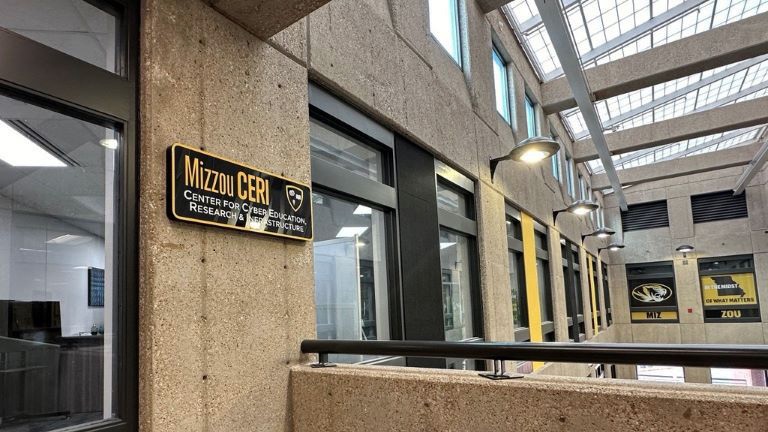January 28, 2025
A new AI-driven framework helps determine what to do when drones lose connectivity.

Drones play a vital role on the battlefield, supporting reconnaissance, logistics and situational awareness. But ensuring the security of these drones is a significant challenge, particularly when they lose connection with their control stations on the ground.
Now Mizzou researchers have successfully demonstrated an artificial intelligence- (AI) driven framework which is designed to ensure cybersecurity in degraded network conditions.
The researchers call the framework “Arculus,” after the Roman god of chests and strongboxes. Arculus dynamically enables drone mission recovery for safety, mission success or both.
Prasad Calyam, Curators’ Distinguished Professor and Greg L. Gilliom Professor of Cyber Security and director of the Mizzou Center for Cyber Education, Research and Infrastructure (CERI), is primary investigator on the project.
Other investigators on the team are Rohit Chadha, associate professor of Electrical Engineering and Computer Science and director of the Mizzou Cybersecurity Center; Vijay Anand, associate professor of Information Systems and Technology, University of Missouri-St. Louis; and Reshmi Mitra, associate professor of Computer Science, Southeast Missouri State University.
The team previously worked to apply a Zero Trust paradigm to the battlefield. Zero trust is common in data centers but is difficult to achieve at the tactical warfighting edge, where devices like drones have little memory or computing capacity.
Furthermore, it’s not uncommon for drones to lose network connectivity in environments where connectivity is DDIL: disrupted, disconnected, intermittent and low-bandwidth.
“If you lose connectivity with a drone, that’s a big problem because it could be hijacked or intercepted, along with its sensitive data,” Calyam said.
Arculus utilizes task-based access control that secures computation and communication tasks in the tactical warfighting edge by dynamically assigning and revoking privileges in a just-in-time manner.
Enhancing drone survivability

The challenge for Calyam and his fellow researchers was to demonstrate a security paradigm in which AI determines the best reward for a drone that has lost connectivity.
“When it reconnects, does it download the data? Or do a safe landing? Or terminate all the data it has onboard?” Calyam said.
The researchers also used Department of Defense- (DoD) grade equipment to successfully demonstrate a real attack and how Arculus was able to successfully recover.
By leveraging hardware and software integrations, the framework enables various security controls to protect drone communications and operations from evolving network and physical attack threats.
The test results showed that combining smart flight path planning with strong network and physical security helped drones survive better and keep working properly in tough situations, even when GPS signals were tricked or blocked.
“We showed how our solutions are able to effectively and efficiently implement zero trust in DDIL scenarios,” Calyam said.
Unique research ecosystem
Mizzou fosters a collaborative environment that is perfect for projects like Arculus.
“Dr. Chadha and I bring complementary expertise to the project. Dr. Anand brings hardware security. Dr. Mitra was a post-doc of mine before she went to Southeast Missouri State,” he said.
Mizzou also has a cooperative research and development agreement with the Defense Information Systems Agency (DISA) and has enjoyed other collaborations with DoD in the past.
The project was further boosted by Mizzou Engineering graduate students Roshan Neupane, Alicia Esquivel Morel, Vamsi Pusapati, Saketh Poduvu, Chandra Bhamidipati, Gautham Reddy Chadha and Kees Kint. Also contributing was Trevontae Haughton, who is part of the National Science Foundation CyberCorps Scholarship for Service program. These students worked closely with the faculty to develop the Arculus software and helped build the hardware demos to show cyber defense innovations to implement zero trust in battlefield environments.
“This collaborative ecosystem puts us in a good position to do projects like Arculus,” Calyam said. “This combination of factors is absolutely unique to Mizzou.”
Learn more about the Mizzou Center for Cyber Education, Research and Infrastructure at Mizzou Engineering.